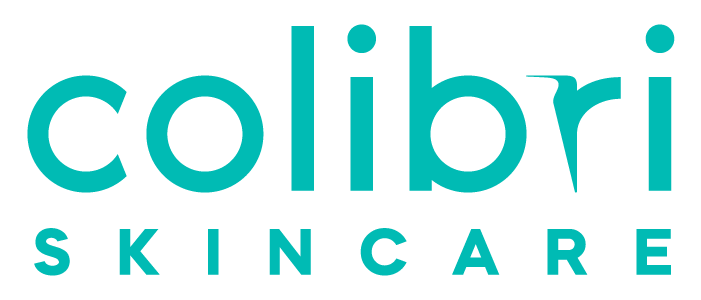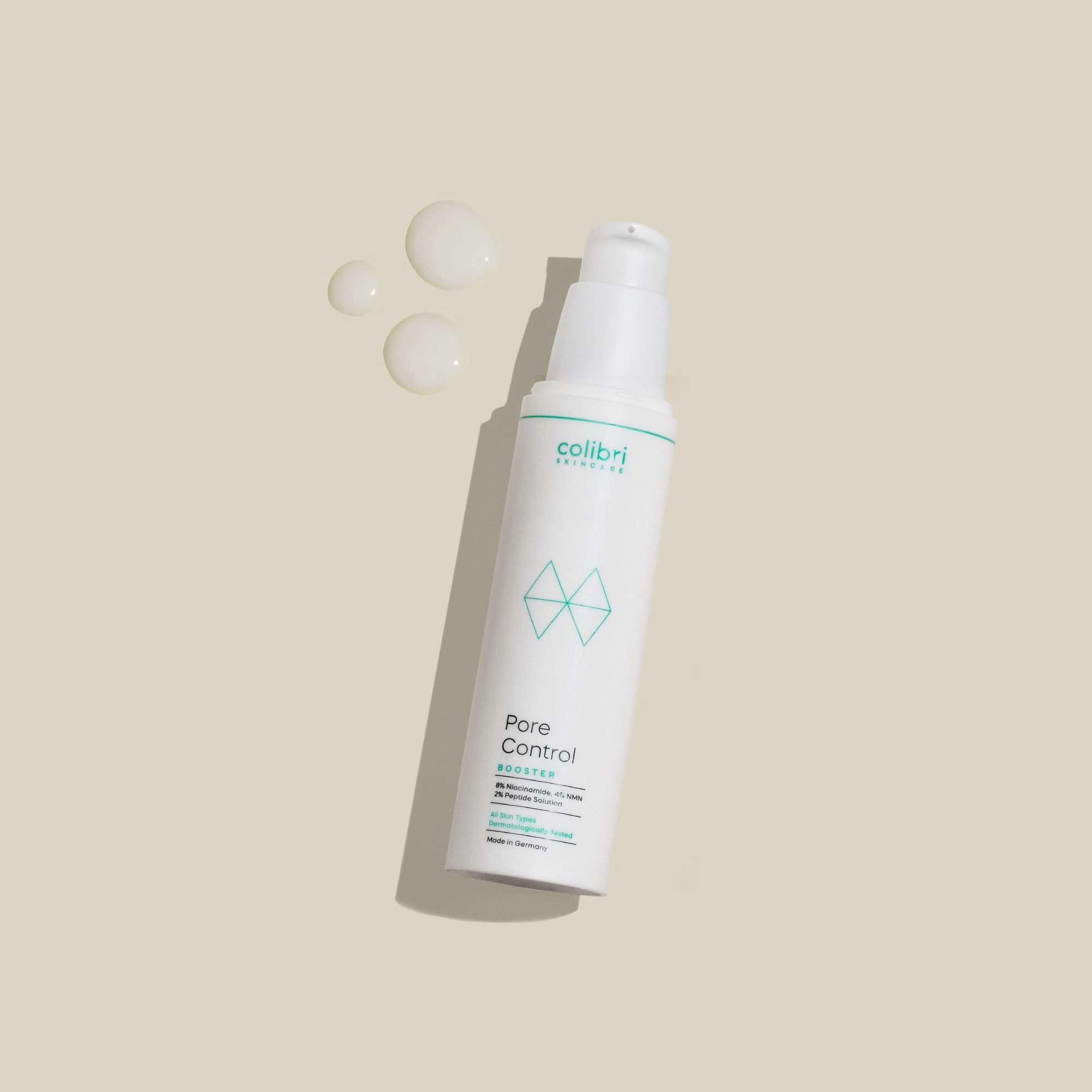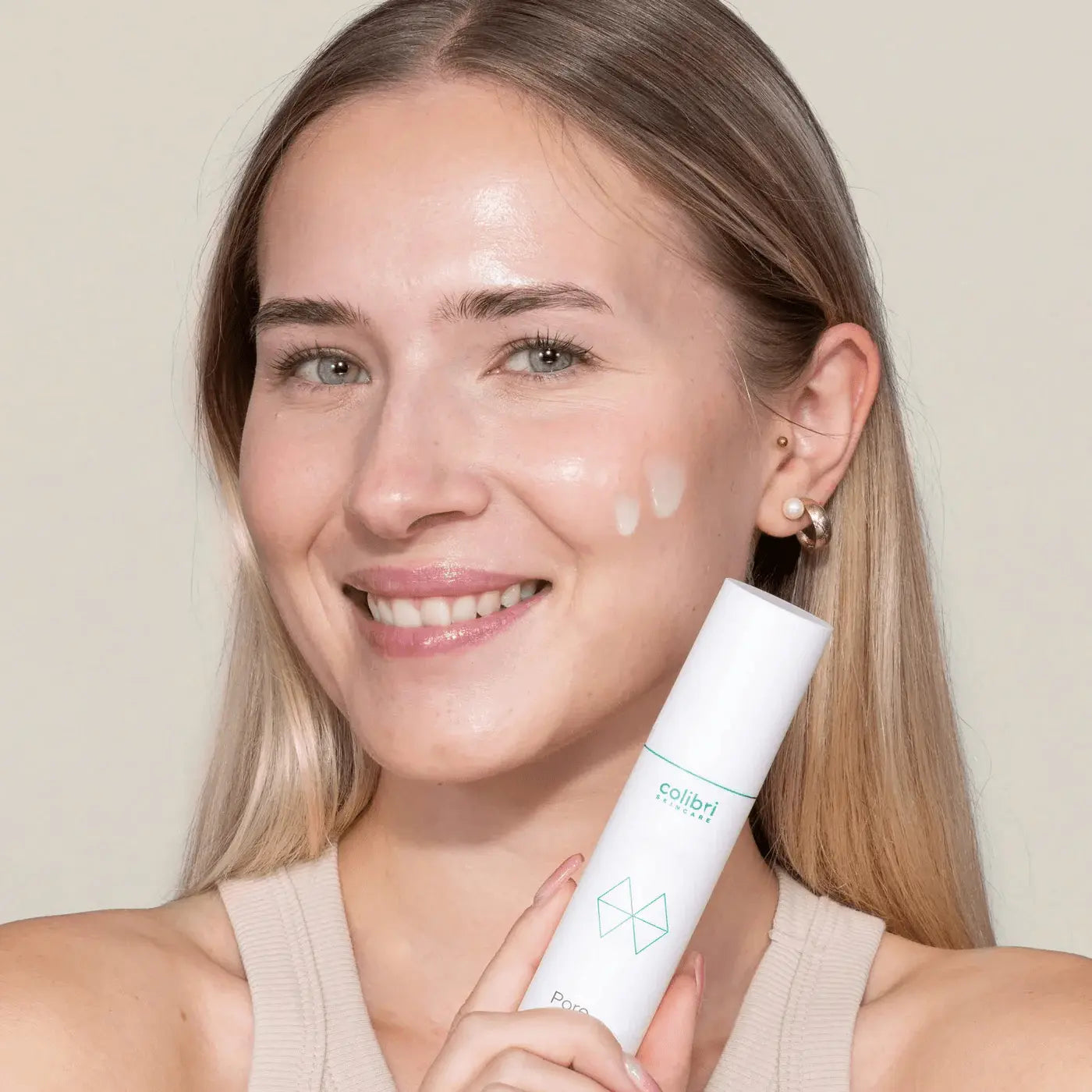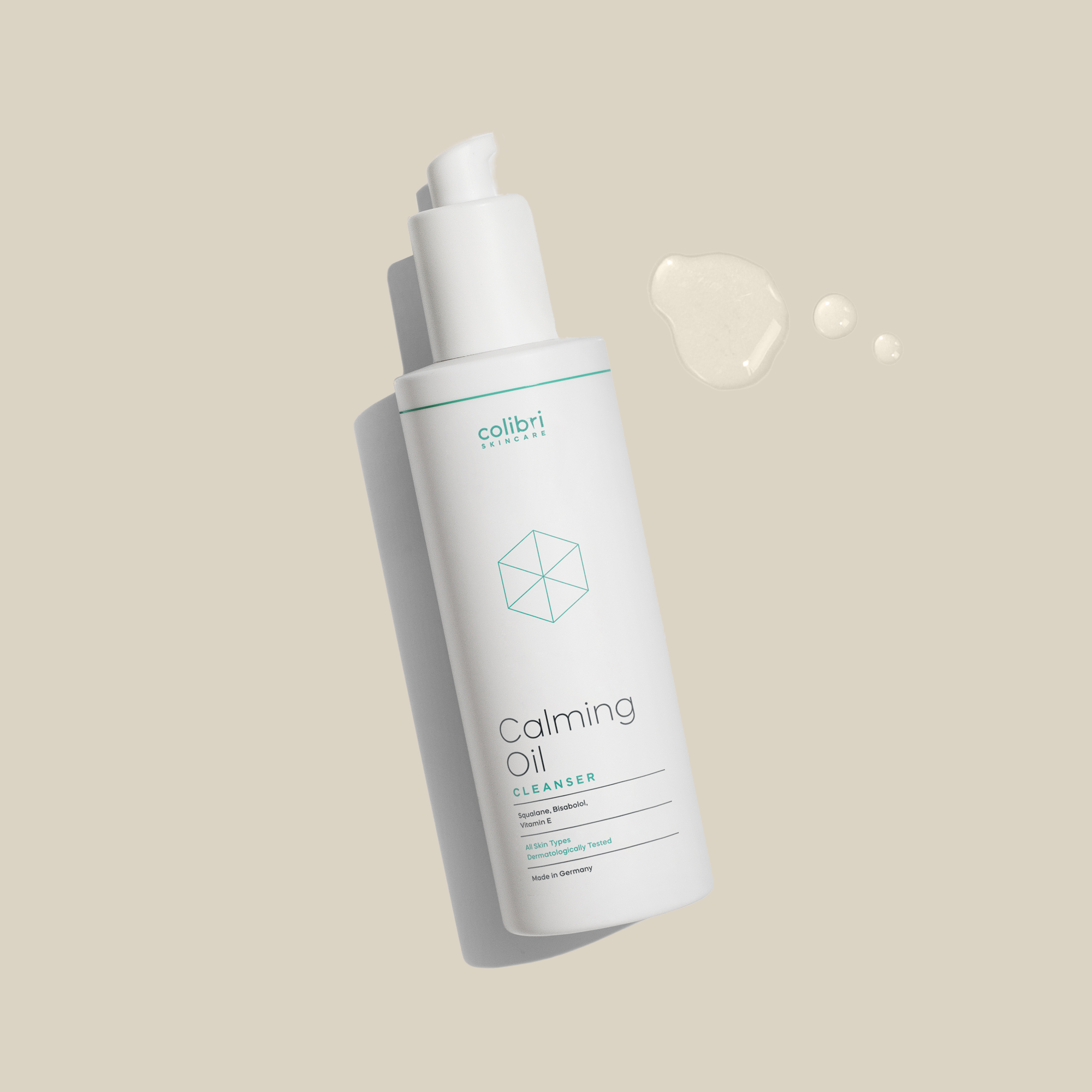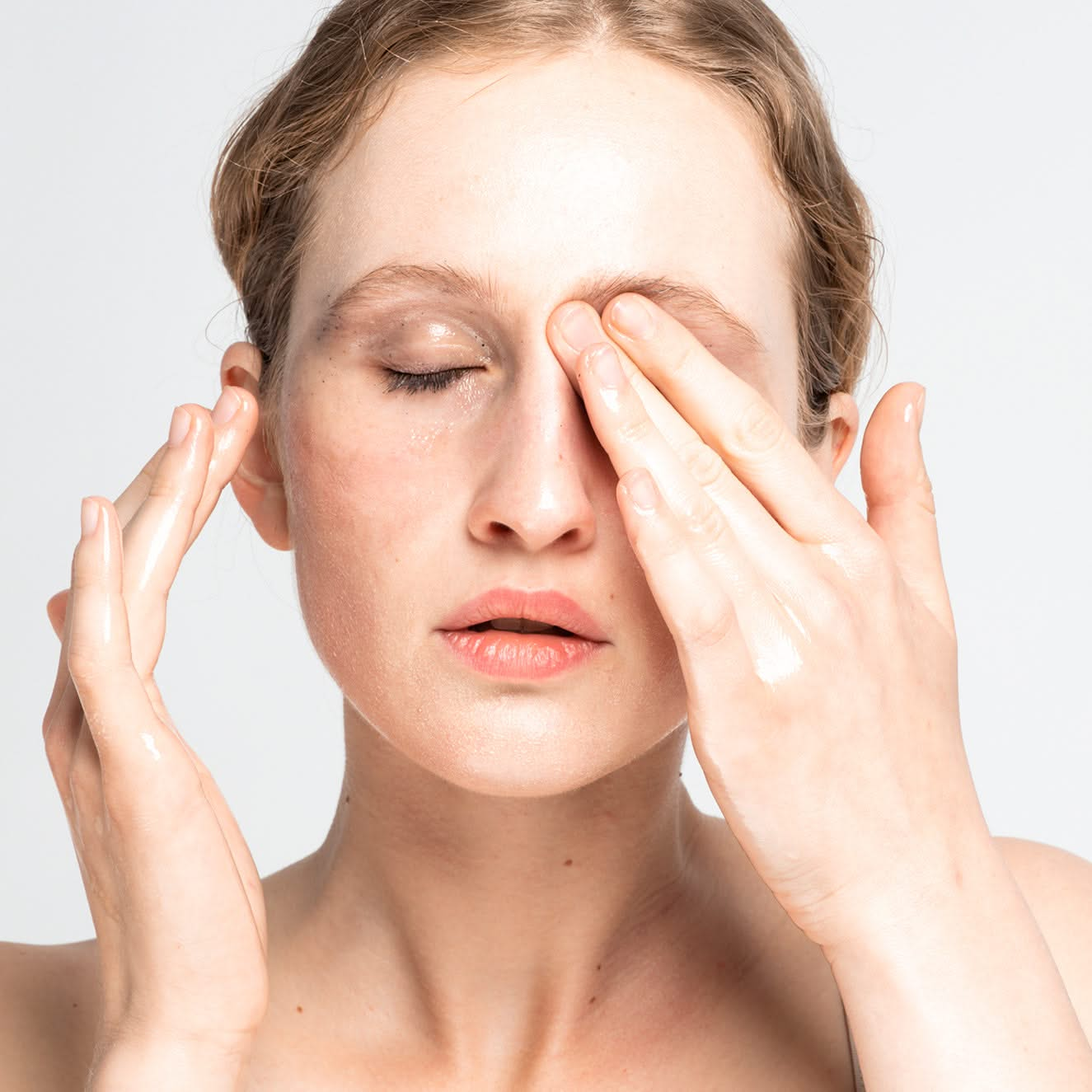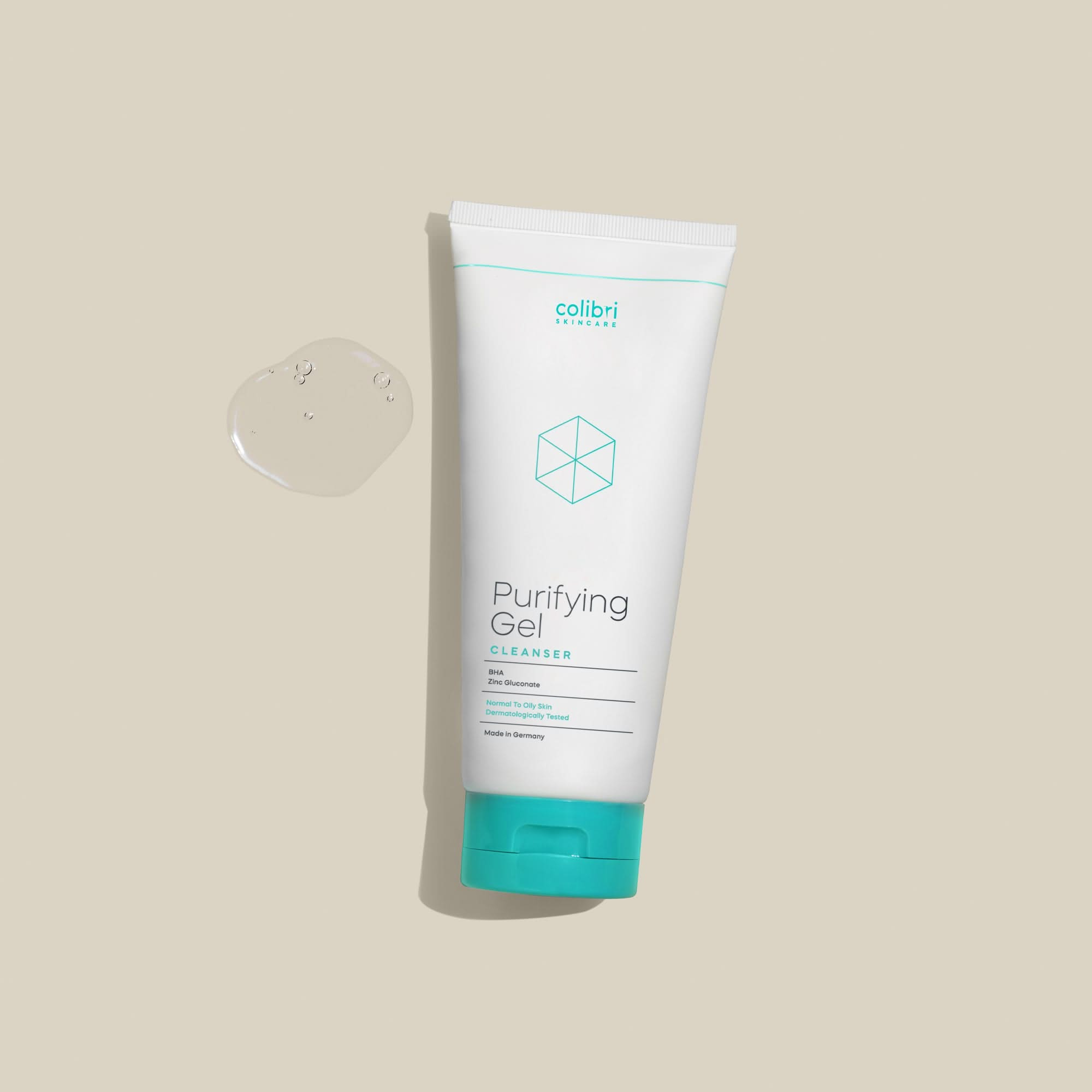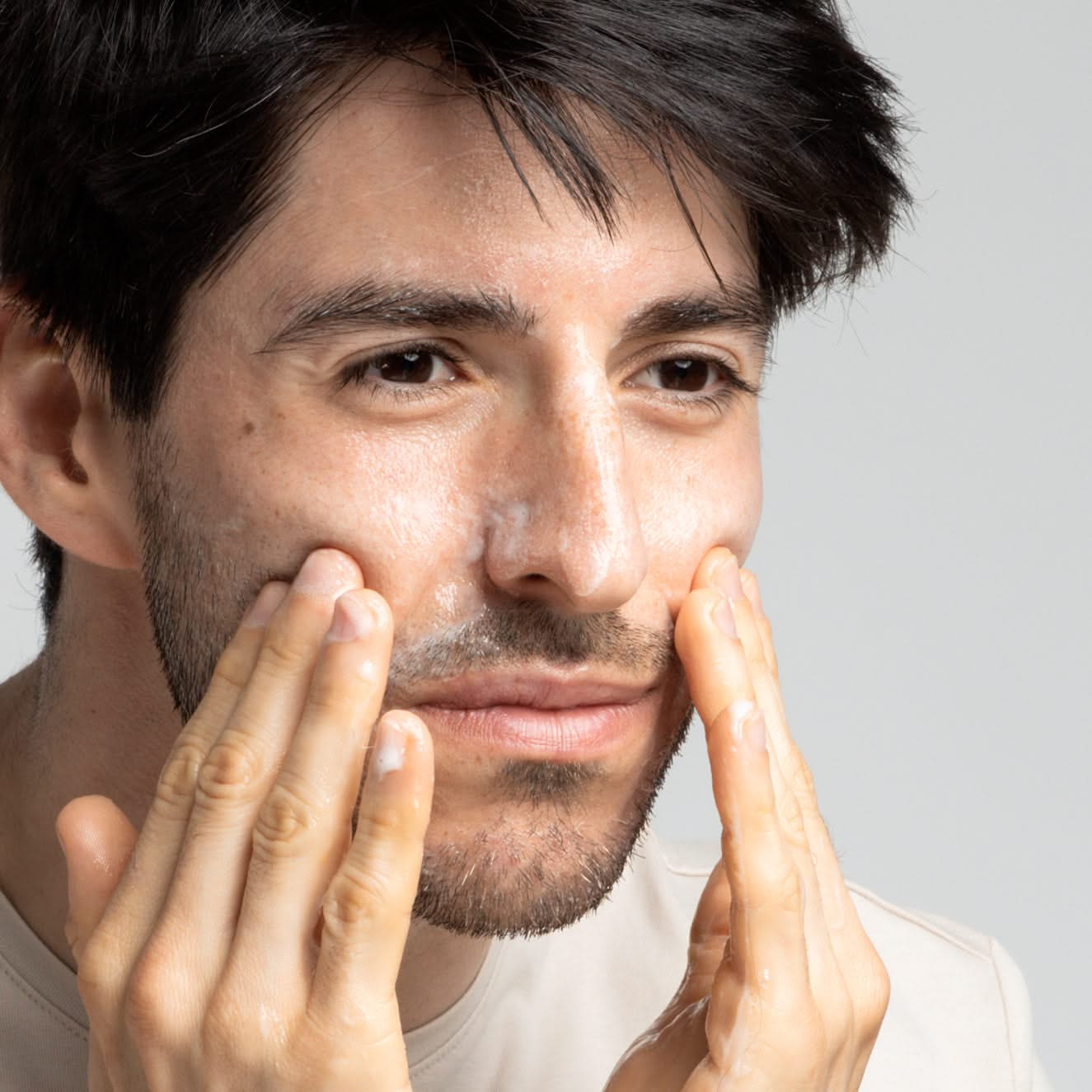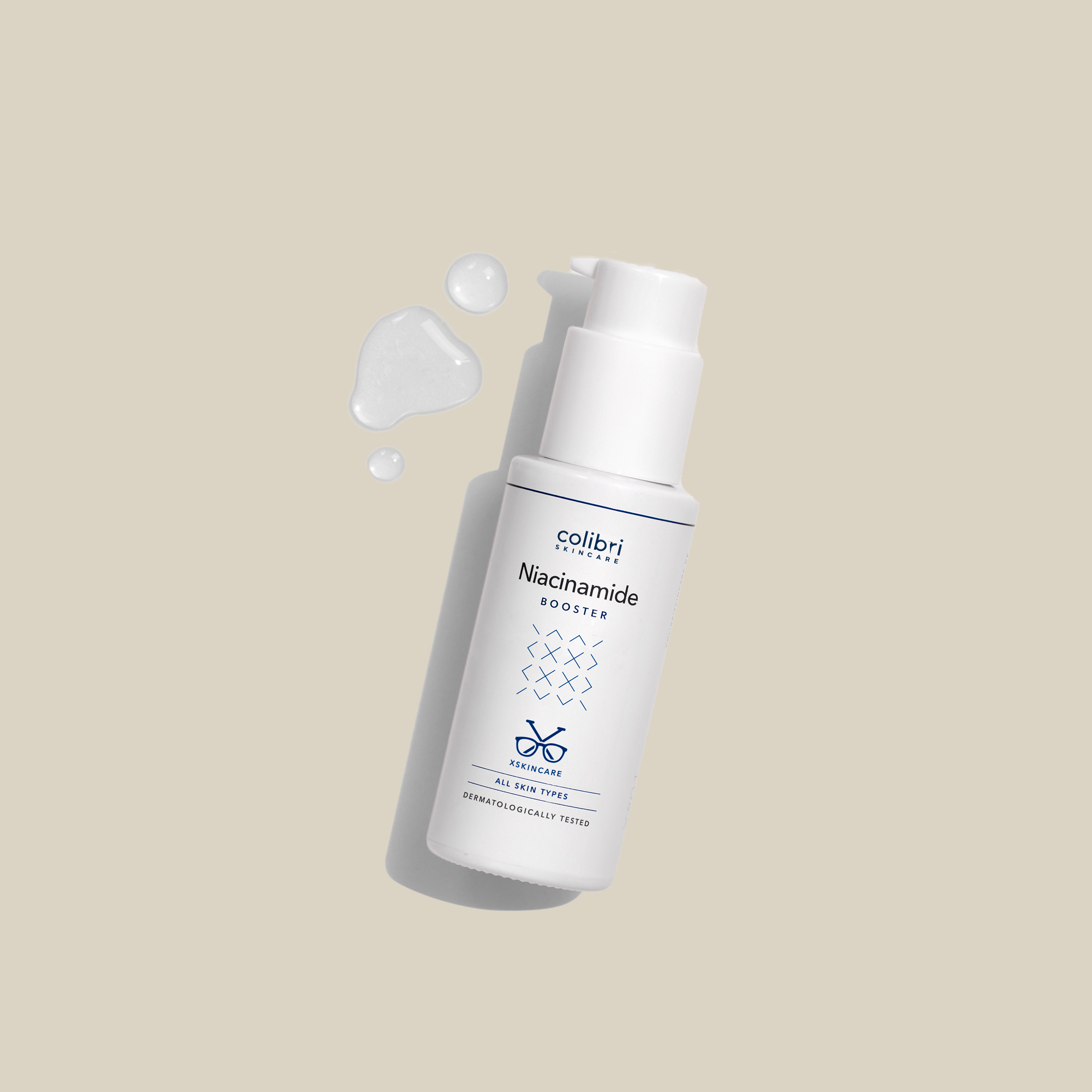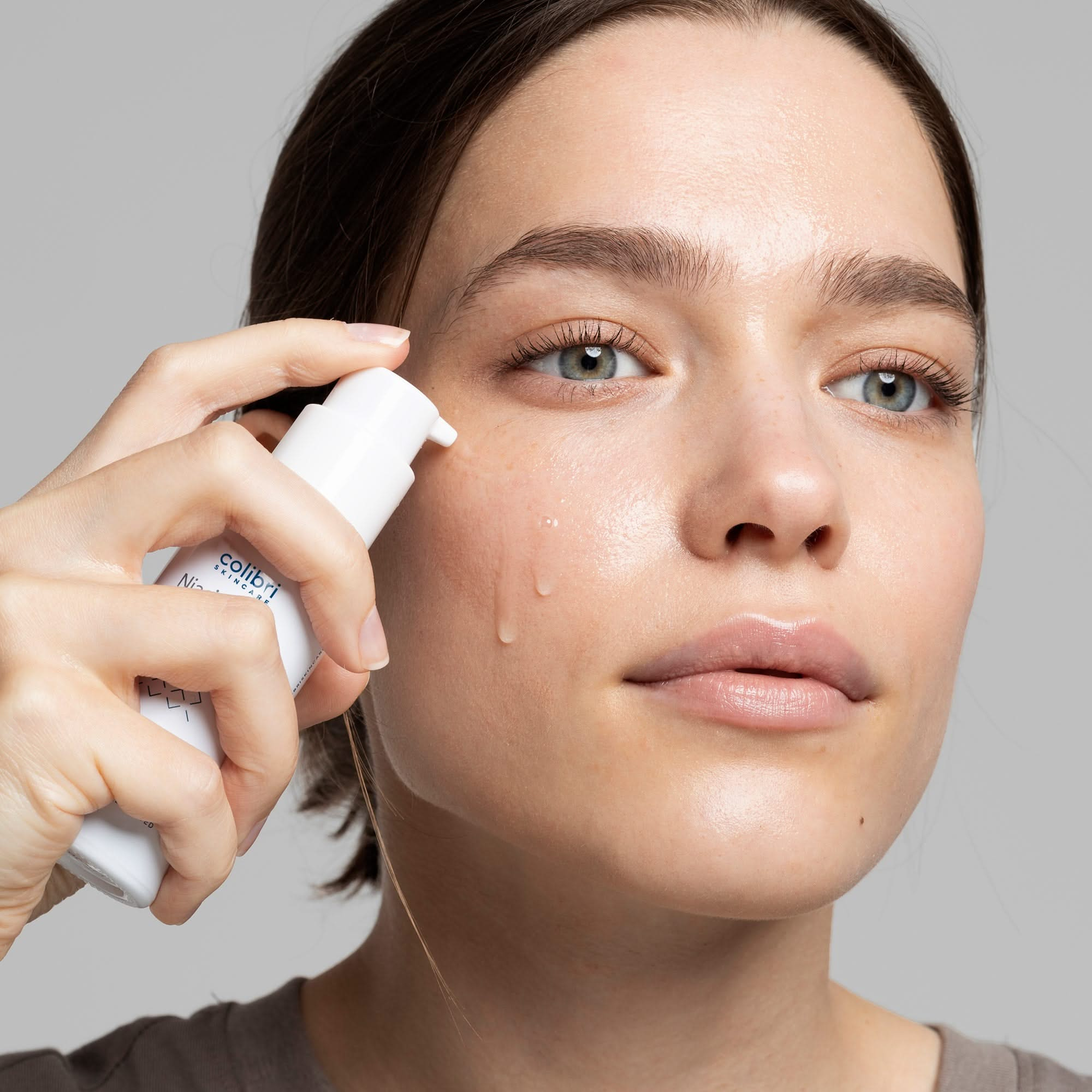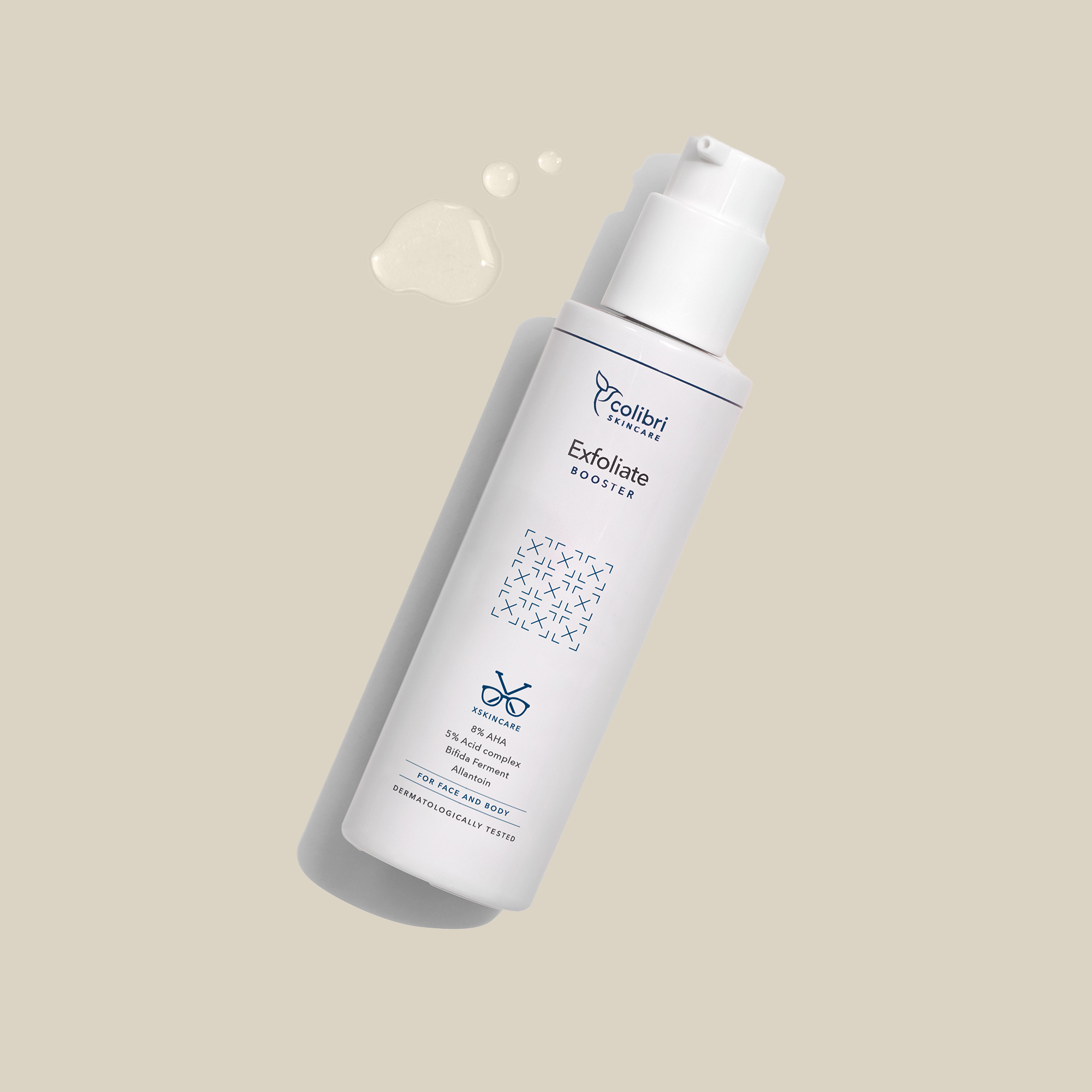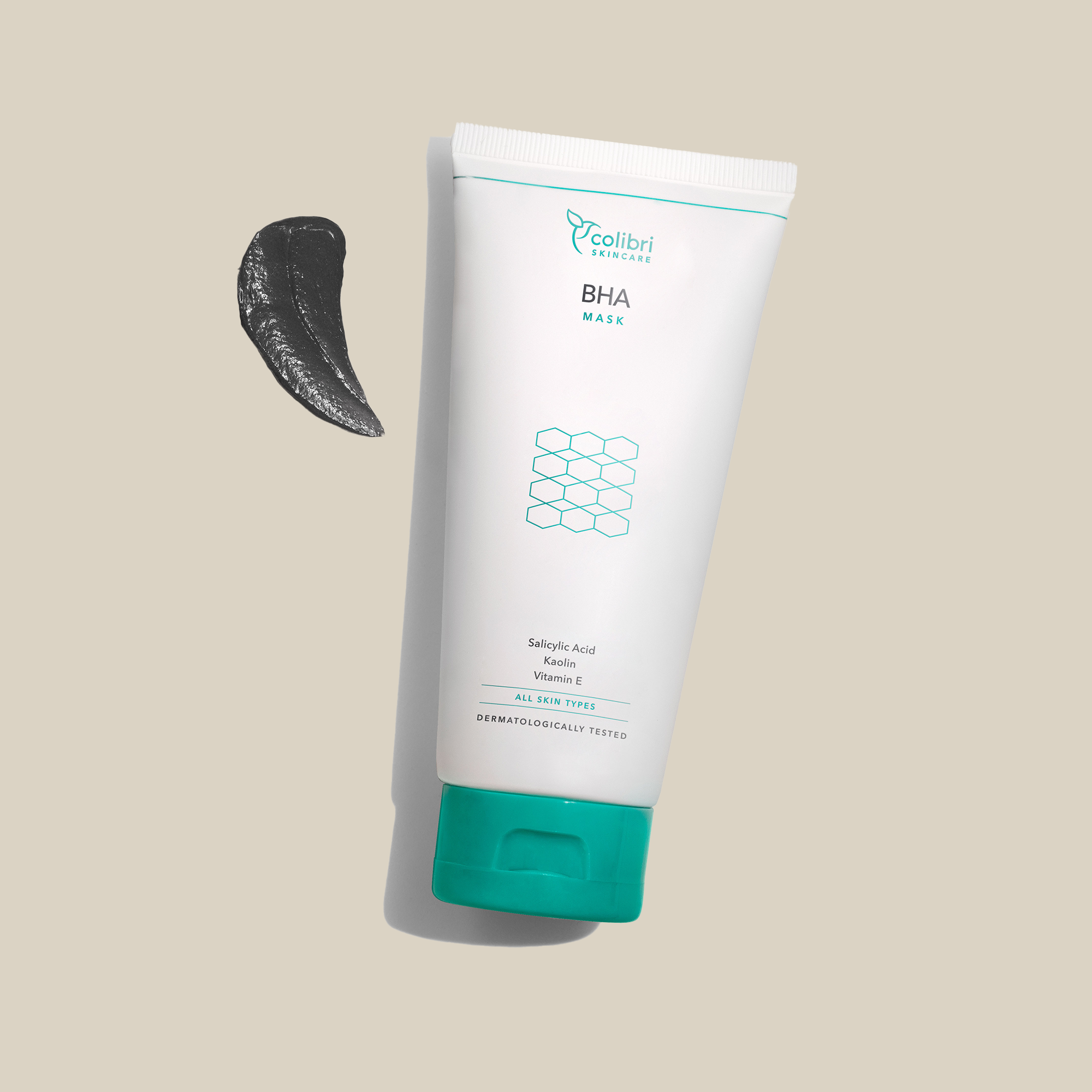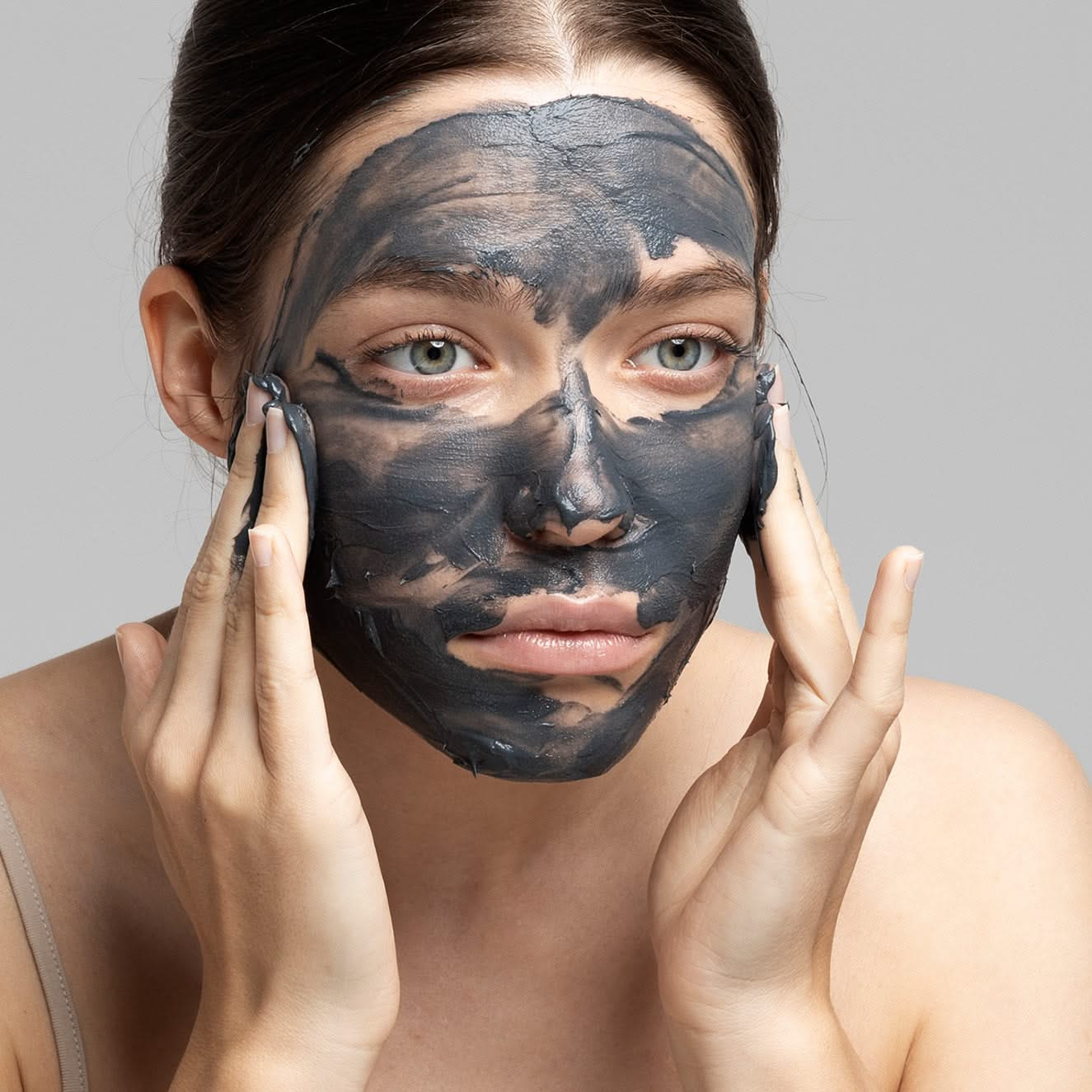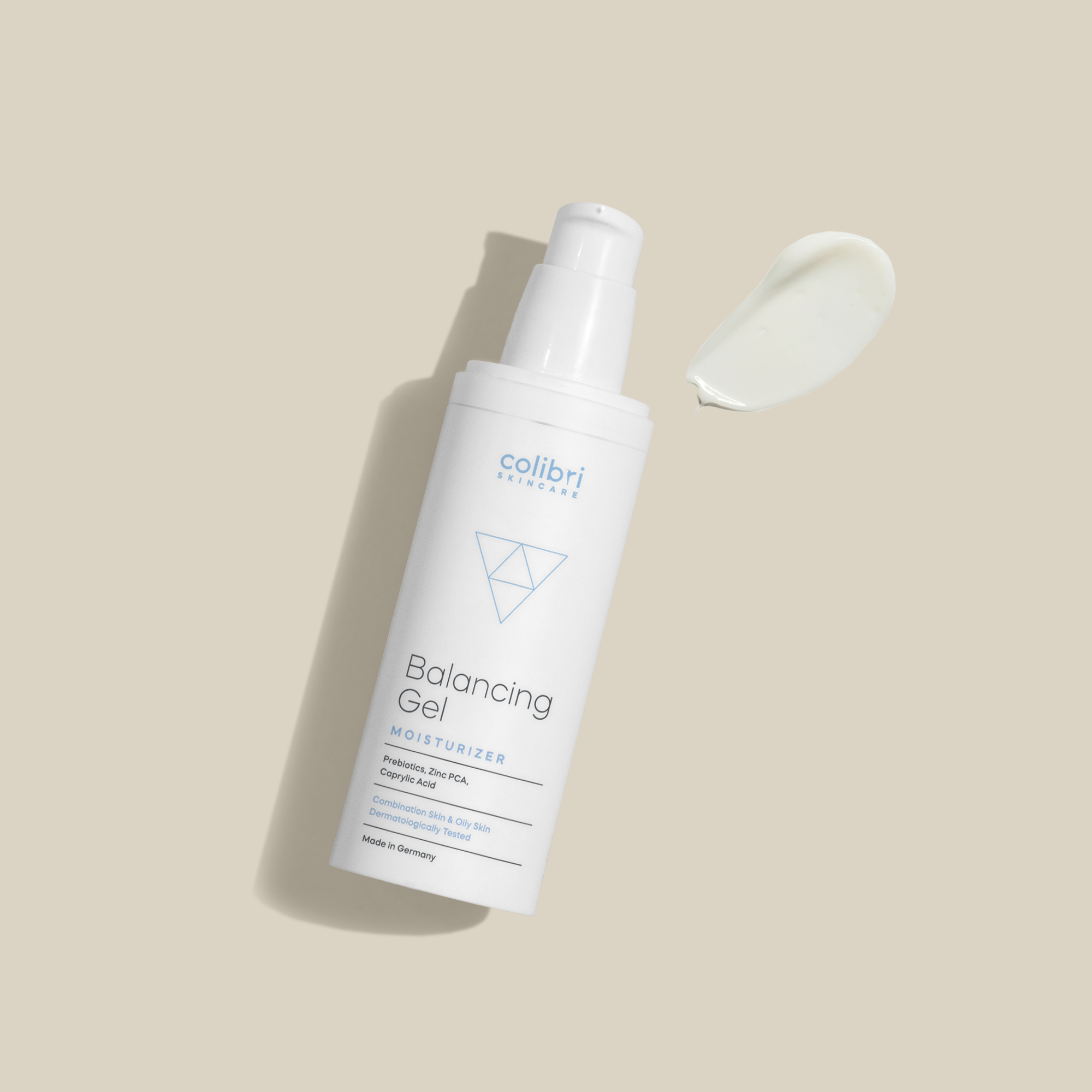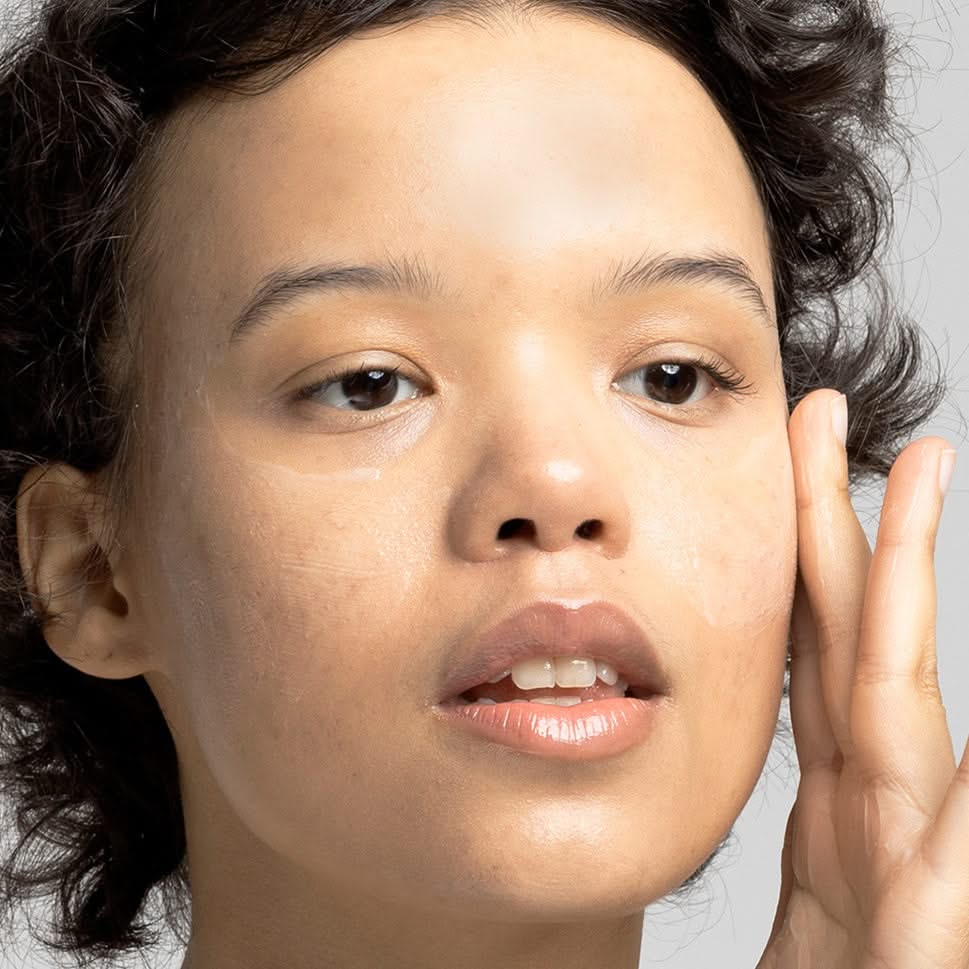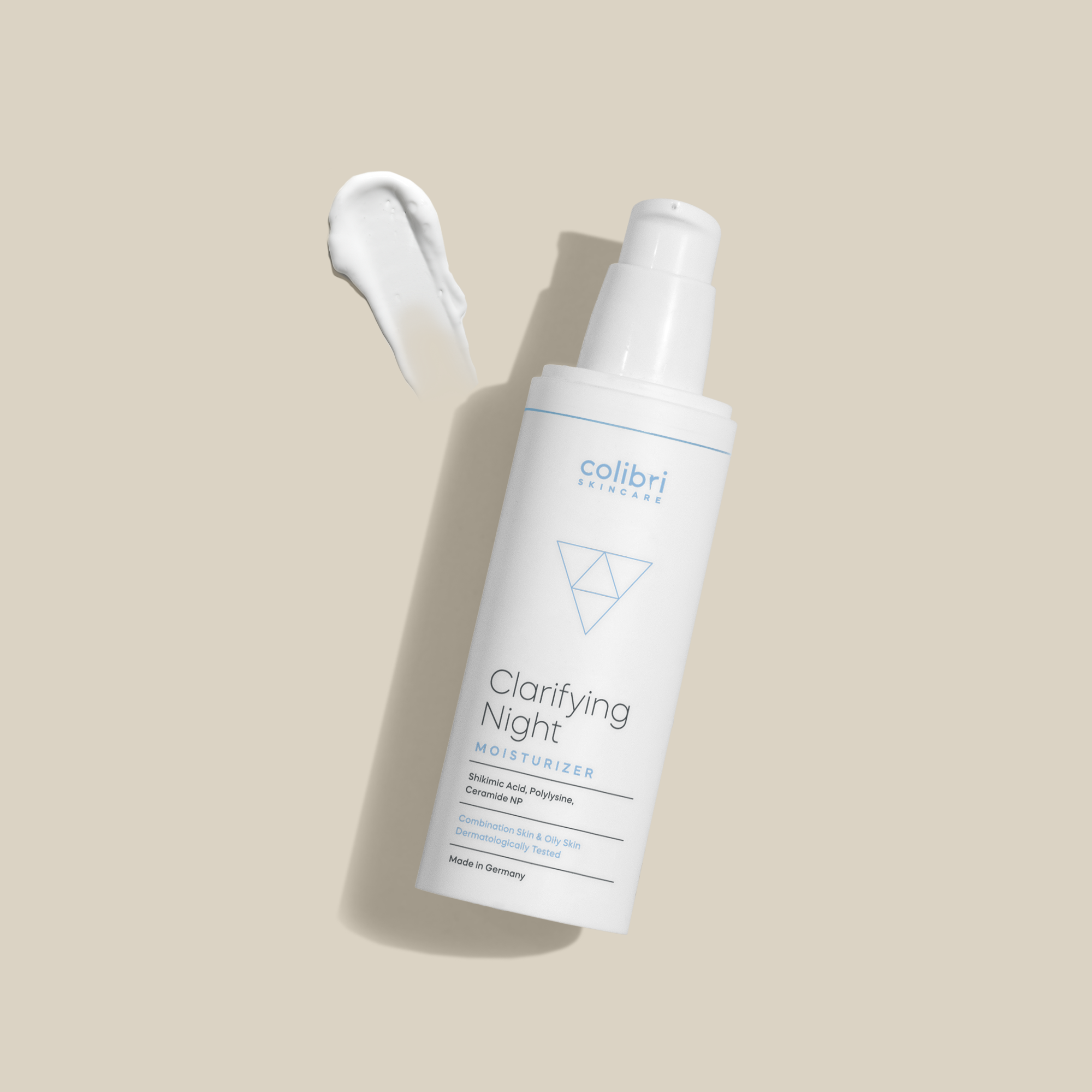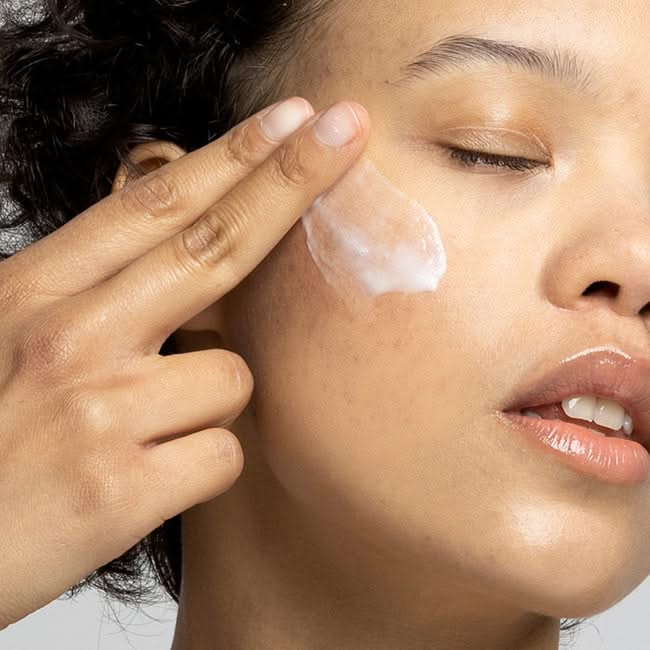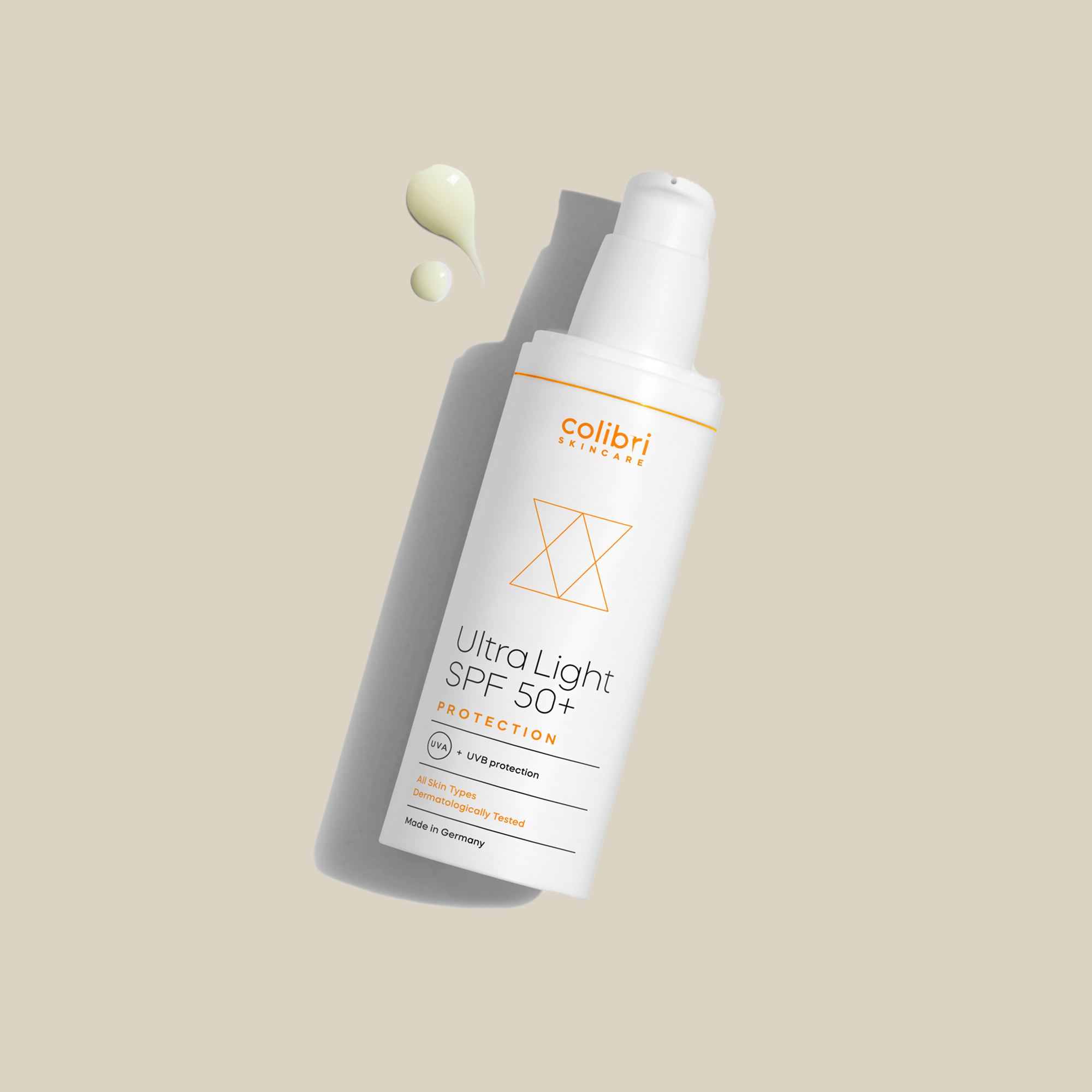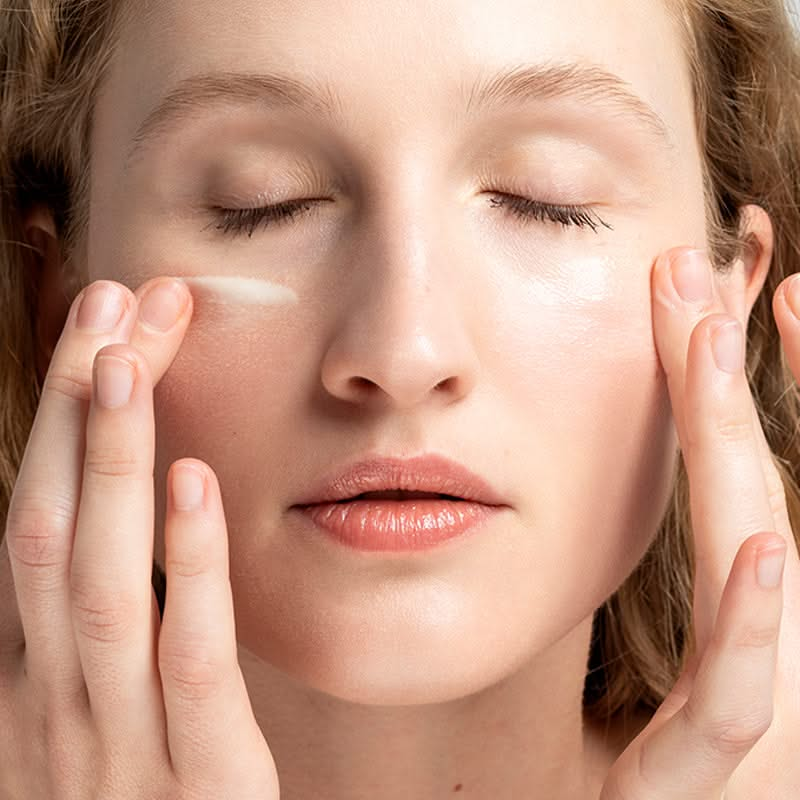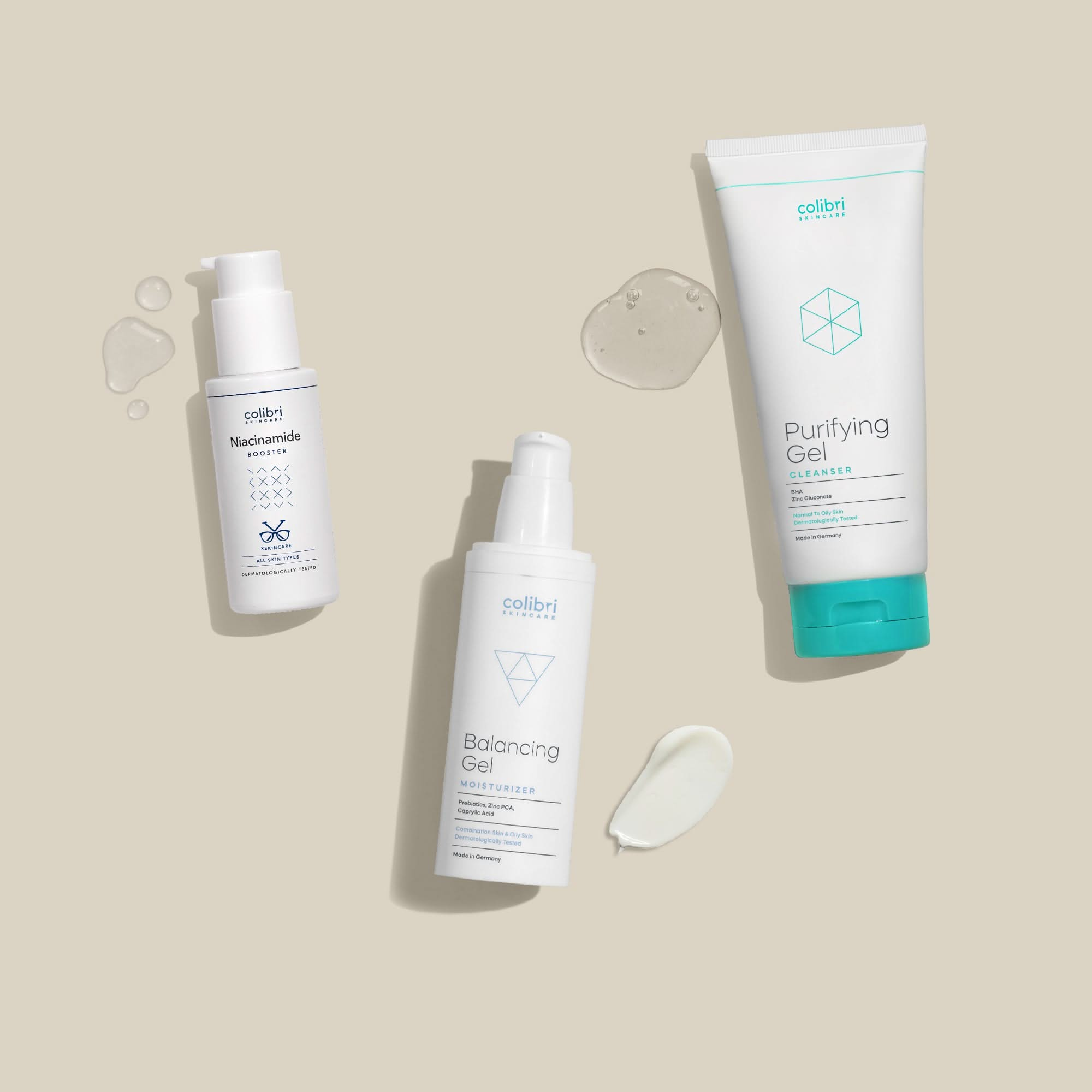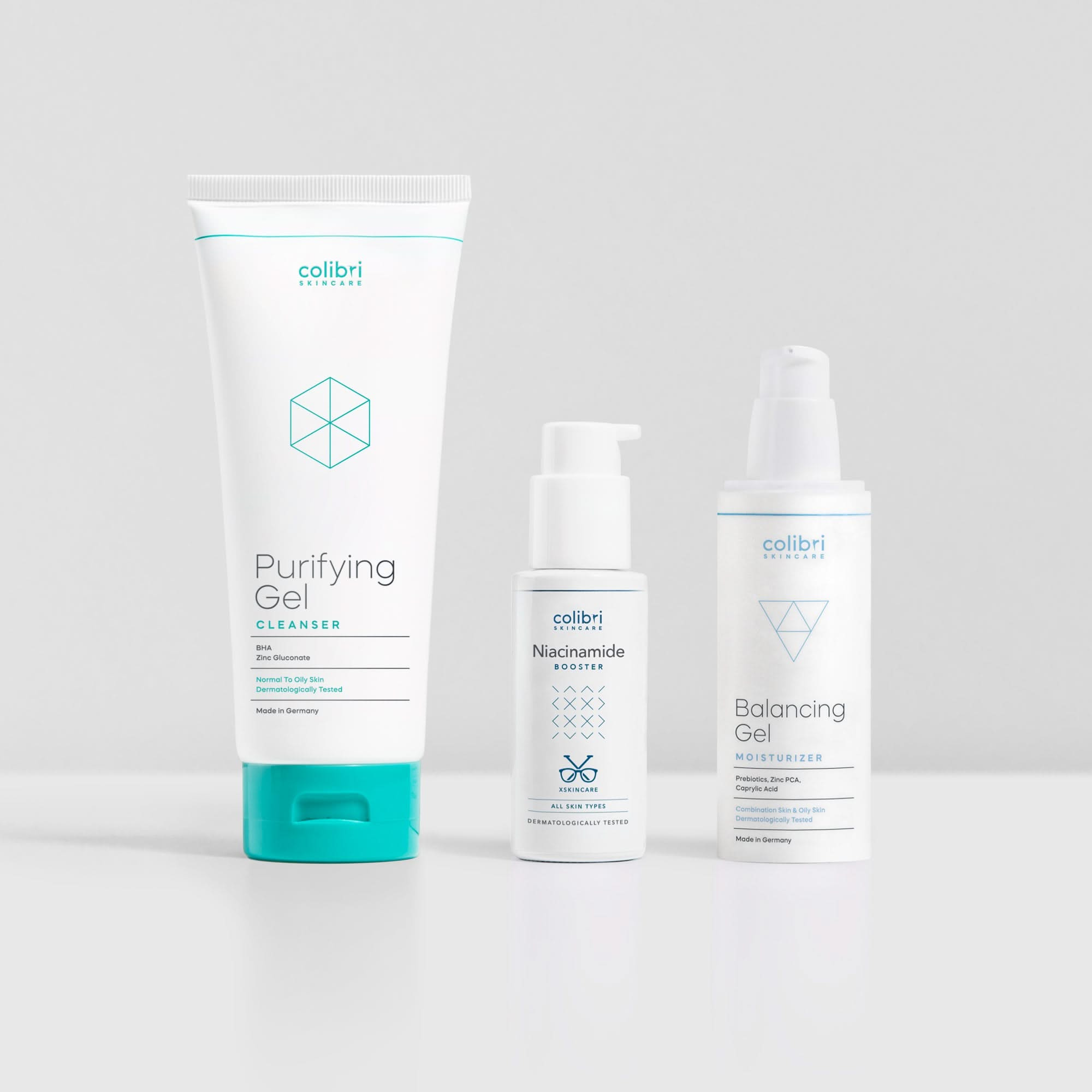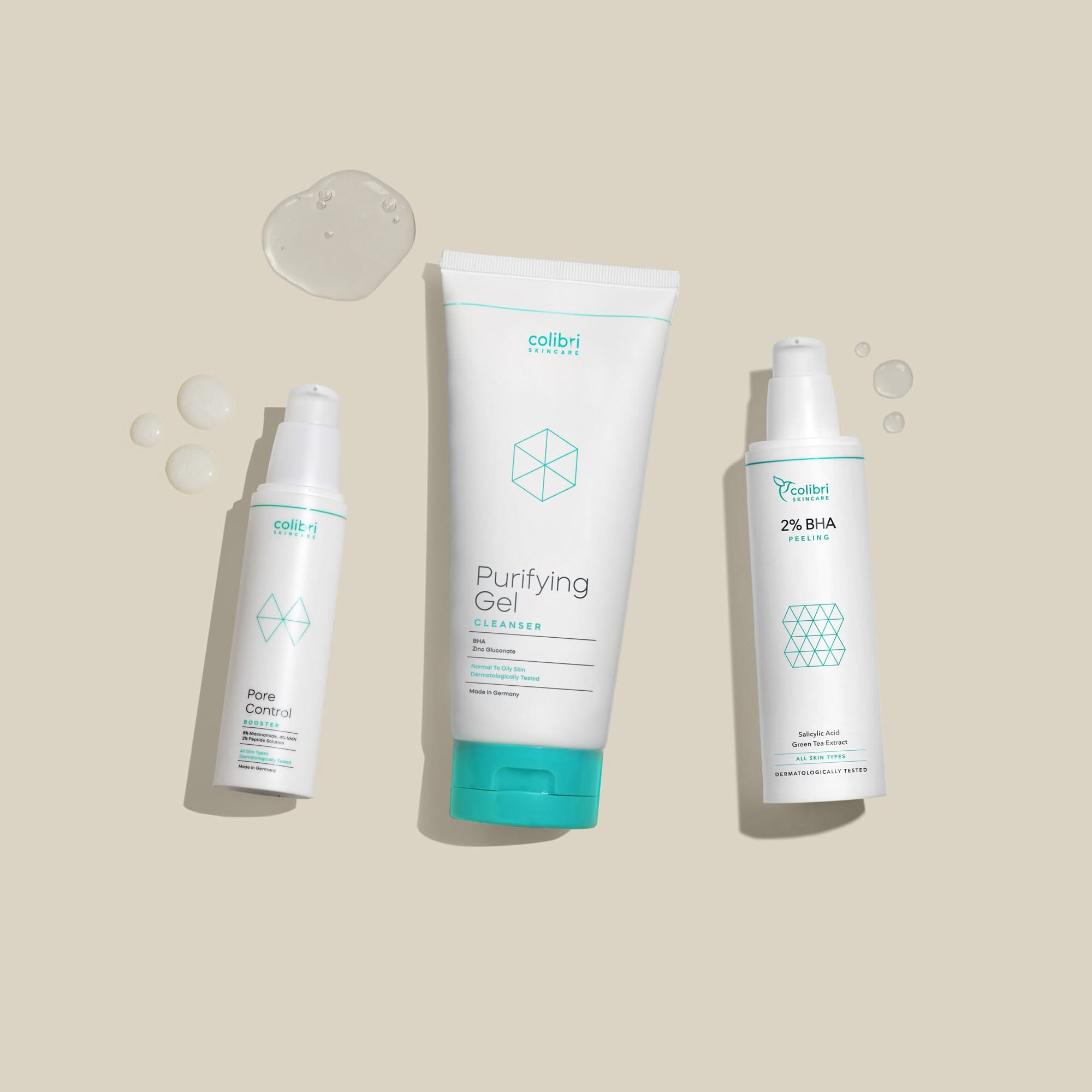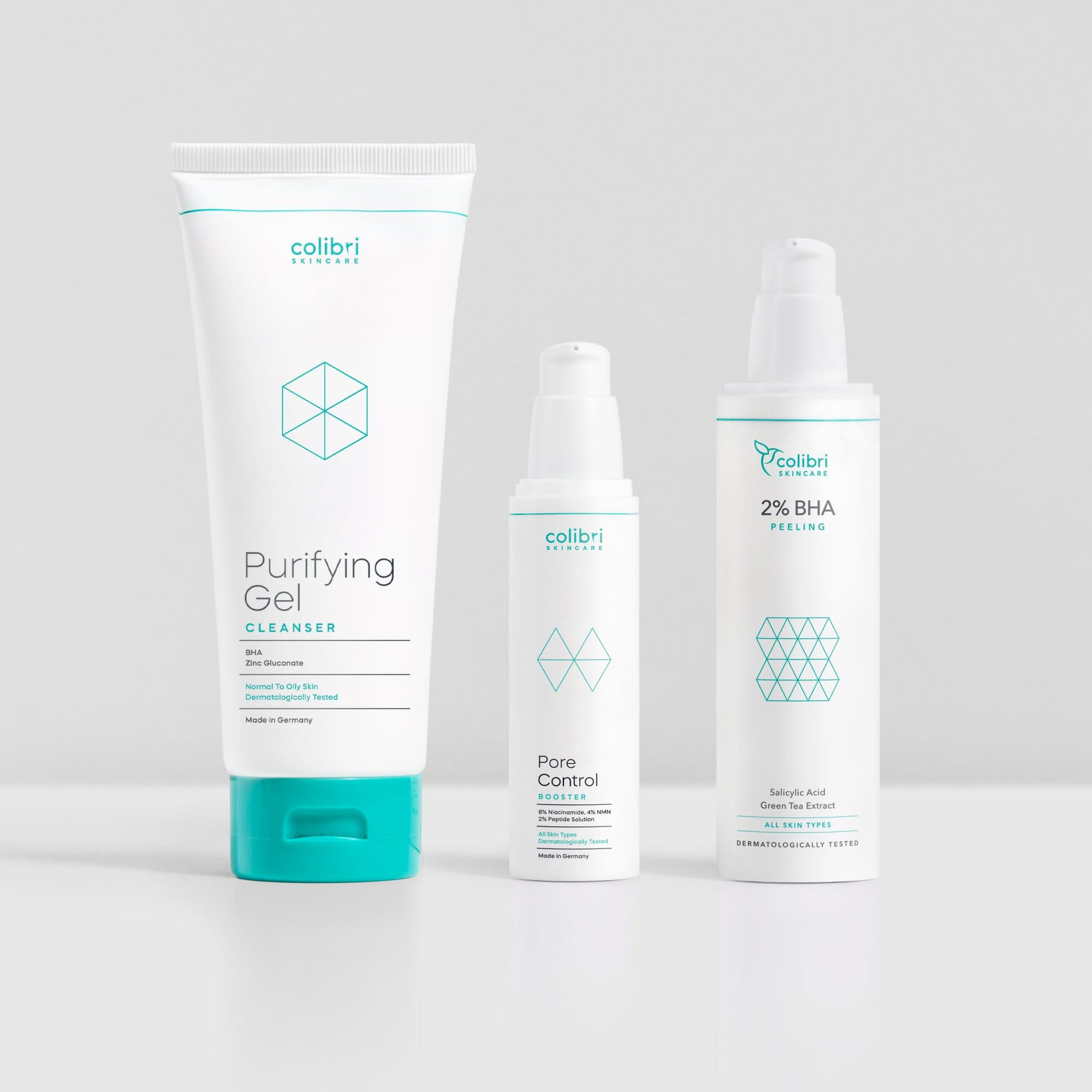The Pore Control Booster brings lasting balance to your skin
Oily skin can be a real challenge. Excess sebum often leads to a shiny complexion, clogged pores, and blemishes. But with the right active ingredients, the skin's appearance can be visibly improved and balanced for the long term. To achieve this, the skin needs targeted care that not only mattifies, but also helps regulate oil production in the long term. This is precisely where the Pore Control Booster comes in. Thanks to its specially developed formula, it supports the skin in reducing excess sebum without over-drying it. It ensures adequate hydration so that the skin does not develop excessive sebum production as a reaction to dryness. With regular use, the skin appears clearer, more balanced, and matte, achieving an even radiance.
Care for excess sebum production
Excess sebum production often leads to oily skin, clogged pores, and an increased risk of blemishes. The right skincare products can help balance the skin. Facial cleansing should remove sebum without overly drying the skin. Non-comedogenic products prevent clogged pores, and regular chemical exfoliation with ingredients like salicylic acid also helps keep pores clear. Even oily skin needs adequate hydration to prevent sebaceous glands from overproducing sebum to compensate for moisture loss. Use lightweight, hydrating products that provide moisture without making the skin greasy. Ingredients like salicylic acid, niacinamide, clay, or vitamin A are particularly effective for controlling excess sebum production.
Skincare mistakes that trigger sebum production
If your skin becomes very oily throughout the day, it may indicate unbalanced sebum production. This often happens when the skin is overly dried out, either due to environmental factors, incorrect skincare, or excessive cleansing. Sebaceous glands then work overtime to restore the skin's natural protective film. This process is amplified by improper skincare habits. Excessive sebum production can also be genetic or hormonally influenced. A common mistake with oily skin is over-cleansing to reduce the greasy feeling. Using harsh cleansers further irritates the skin and disrupts its natural moisture balance, causing it to produce even more oil to restore its protective barrier. Skipping sufficient hydration can also worsen this effect. Certain active ingredients can trigger excess sebum production, and comedogenic or alcohol-heavy products can exacerbate the symptoms.
Oily & dehydrated - Finding balance
It can be frustrating when oily skin also shows signs of dryness. The forehead, nose, and chin often appear shiny and greasy, while other areas feel dry, flaky, or tight. Despite the oily appearance, the skin may feel uncomfortably tight. Fine lines can quickly form, and the complexion may look dull. Caring for oily yet dehydrated skin requires a balanced approach that provides both moisture and sebum control. A gentle, mildly foaming cleanser that removes excess oil without drying out the skin is ideal. Hydrating toners, serums, and lightweight creams can provide sufficient moisture without leaving a greasy finish. Niacinamide is effective in regulating sebum production while also strengthening the skin barrier to prevent moisture loss. Using a hydrating mask once or twice a week can give the skin an extra boost of hydration.
